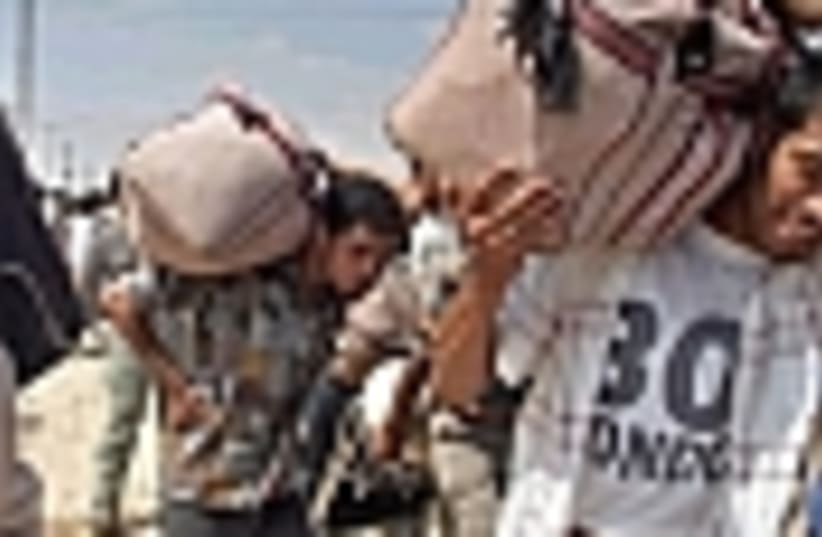| More about: | Rafah Border Crossing, European Union, Brussels, James Wolfensohn |
EU agrees to monitor Rafah crossing
Israeli, PA officials will try to resolve remaining Rafah disputes.


| More about: | Rafah Border Crossing, European Union, Brussels, James Wolfensohn |